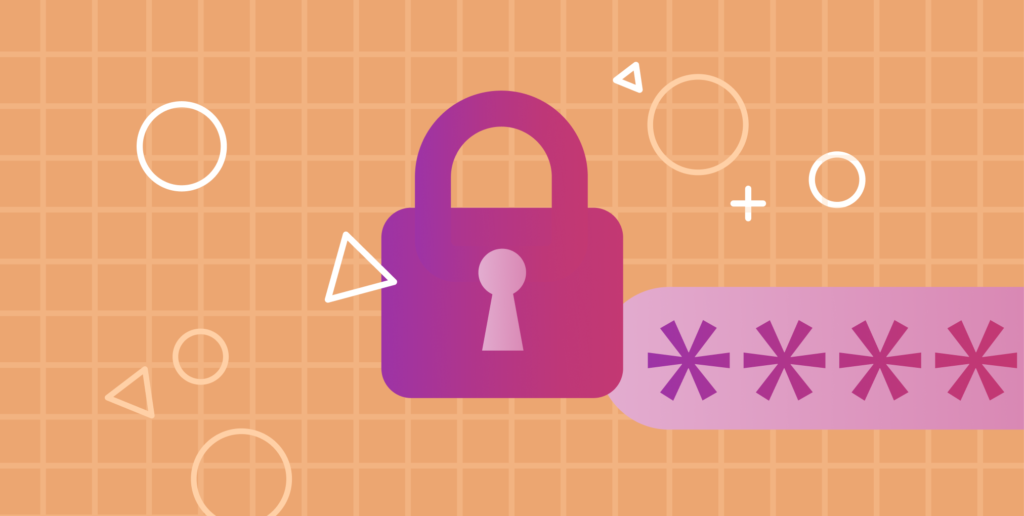Now more than ever, security stands as a primary concern within the web3 domain. The expansion of decentralized applications, digital assets, and blockchain technologies has created vast opportunities while simultaneously exposing the vulnerabilities and risks inherent in innovation.
In recent times, we’ve observed various projects, both large-scale and smaller initiatives, succumbing to hacking incidents, resulting in substantial financial losses.
To navigate this intricate landscape and protect your projects, the practice of smart contract auditing emerges as an essential defense mechanism against potential threats.
This blog post offers a comprehensive guide to understanding smart contract auditing, emphasizing its significance, the consequences of disregarding it, and a list of top security audit firms within the industry. These firms can collaborate with you to fortify your Web3 project’s security.

What is a Smart Contract Auditing?
What is a Smart Contract Auditing?
Smart contract auditing constitutes a detailed procedure that thoroughly scrutinizes the smart contract’s code to pinpoint vulnerabilities, bugs, and security loopholes.
This meticulous review guarantees the code’s intended functionality and minimizes susceptibility to exploitation by malicious entities.
Audit firms conduct rigorous testing and examination to pinpoint potential weaknesses, providing recommendations to bolster the contract’s resilience.
This process involves a comprehensive evaluation of the code’s architecture, logic, and possible execution scenarios. By identifying vulnerabilities, auditors avert potential attacks and unauthorized entries. Real-life instances such as The DAO hack and the Parity wallet bug underscore the crucial role of auditing in averting catastrophic incidents.
Dangers of not Auditing your Smart Contract
The Web3 sphere operates at high stakes, and overlooking a comprehensive smart contract audit can yield disastrous consequences. Here are notable risks to consider:
Fund Loss: Neglecting smart contract auditing poses an immediate risk of fund depletion. Picture investing significant resources into a project only to discover a vulnerability enabling malicious entities to drain all funds. This isn’t just a theoretical concern; it has occurred multiple times in Web3 history.
Unauthorized Access: Smart contracts often handle sensitive data, from financial transactions to personal information. Inadequate auditing creates openings for unauthorized access to these contracts, potentially exposing user data and transaction specifics to malicious entities.
Exploitation and Manipulation: Vulnerabilities in smart contracts can be exploited to alter their intended functionality. Attackers can misuse these vulnerabilities, bypass security measures, and execute unintended actions. For instance, the “reentrancy” attack on the DAO smart contract allowed an attacker to repeatedly withdraw Ether before the contract updated its balance, resulting in a substantial Ether drain.
Reputation Damage: Compromised smart contracts not only have financial ramifications but can also irreversibly harm a project’s reputation. Stakeholders lose trust in projects that overlook security, leading to credibility loss and a diminished user base.
Regulatory Scrutiny: Given the evolving regulations around cryptocurrencies and blockchains, security breaches can attract regulatory attention. Failing to prioritize security measures may result in legal and regulatory repercussions for projects.
Financial Liabilities: Neglecting auditing and subsequent security breaches can lead to financial liabilities. Projects might face legal actions from affected parties, potentially compensating users for their losses. Apart from possible regulatory penalties, projects could incur significant financial liabilities.
How to Choose a Smart Contract Auditor Firm?
How to Choose a Smart Contract Auditor Firm?
Choosing the correct smart contract auditing firm is a key decision that can significantly impact your project’s security.
Consider the following factors:
- Expertise: Look for firms with extensive experience auditing smart contracts within your project’s niche.
- Reputation: Research the firm’s track record, read client testimonials, and gauge its industry reputation.
- Methodology: Inquire about their auditing process, including code review, vulnerability assessment, and testing techniques.
- Transparency: Choose a firm that offers clear and open communication throughout the auditing process.
- Certifications: Opt for auditors with relevant certifications and memberships in cybersecurity organizations.
- Communication: Effective communication is crucial throughout the auditing process. Choose a responsive and willing auditor to address your concerns and questions.
Top 7 Smart Contract Auditing Firm You Can Consult
At GemlyBit, we have helped you to research the most popular and reliable Smart Contract Auditing Companies you can consult.
Here is the list of those companies:
SolidProof, stationed in Germany, has forged an illustrious path since its inception. Over 1500 security audits and 500+ KYC verifications paint a vivid picture of their significance in blockchain security.
Boasting a cadre of adept security auditors, their meticulous reports outline vulnerabilities and their severity, attesting to their commitment. Clients such as CoinxPad and Red Hat attest to their prowess and impact.

2. Consensys
Co-founded by one of Ethereum’s creators, Joe Lubin, ConsenSys, specializing in Ethereum-based smart contracts, stands apart. An integral part of ConsenSys, ConsenSys Diligence focuses solely on these smart contracts and has contributed to renowned web3 tools like Metamask and Truffle.
Their services include exhaustive audits, ensuring the utmost security and reliability for Ethereum projects. Notable names such as Aave, OmiseGo, and Covantis trust ConsenSys’s comprehensive approach, combining automated analysis tools and meticulous code review.
Services Offered
- Thorough, smart contract audits tailored for Ethereum projects
- Automated bug testing mechanisms
- An integrated platform for the development and deployment of smart contracts

3. Hacken
Emerging from Ukraine in 2017, Hacken has swiftly grown into a leading blockchain security firm. Hacken’s track record is impressive, with a workforce exceeding 100 professionals and over 1,000 clients encompassing crypto exchanges and decentralized applications.
Their auditing, cybersecurity, and ethical hacking prowess has safeguarded over $10 billion in assets. Widely recognized, Hacken’s certification sets the standard for Web 3.0 security and enjoys acknowledgment from respected platforms like Coingecko and Coinmarketcap.

4. Certik
A prominent figure in smart contract auditing, Certik’s origins trace back to 2018, established by esteemed professors from Yale and Columbia Universities. Their extensive audit portfolio, encompassing 3,500 projects, underscores their significance in the industry.
Notable platforms such as Binance, OKEx, and Polygon rely on Certik to secure over $300 billion of assets. Certik’s thoroughness sets it apart, offering audits and invaluable recommendations to address vulnerabilities.
5. OpenZeppelin
OpenZeppelin, founded in 2015 by Ethereum core developers, is a renowned open-source framework for creating secure smart contracts. Major companies like Samsung, Dell, and Microsoft utilize it.
The framework offers comprehensive security audits conducted by experienced auditors who analyze smart contracts, system architecture, and codebase for potential vulnerabilities. The audit process results in a detailed report outlining identified issues.
OpenZeppelin is a premier crypto cybersecurity technology firm providing tools and smart contract libraries for secure dApp development.
They’ve audited prominent organizations like Coinbase, Ethereum Foundation, Aave, Compound, and The Graph, protecting over $10 billion worth of assets. Their audit phases encompass contact, quote, audit, report, fixes, and optional report publication.
Steering its blockchain and smart contract security expertise, ChainSecurity has solidified its reputation through collaboration with over 85 prominent crypto organizations, including Compound, Maker, Rarible, Kyber Network, and Curve. Boasting a seasoned team composed primarily of Ph.D. scholars and engineers from esteemed Swiss universities, alongside former Big 4 professionals,
ChainSecurity has been a cornerstone of the smart contract audit landscape since 2017. This extensive experience extends to complex DeFi projects and high-impact enterprise initiatives.
7. Certora
Hailing from Israel, Certora brings a unique angle with its focus on self-serve automated platforms and formal verification, ensuring code adherence to specifications. DeFi giants like Aave, Balancer, and Maker have sought refuge in Certora’s tools against potential security breaches.
Their accomplishments span over 2 million Solidity smart contract code lines, safeguarding a total value locked (TVL) exceeding $32 billion.
Conclusion
The Web3 sphere operates at high stakes, and overlooking a comprehensive smart contract audit can yield disastrous consequences. Here are notable risks to consider:
Fund Loss: Neglecting smart contract auditing poses an immediate risk of fund depletion. Picture investing significant resources into a project only to discover a vulnerability enabling malicious entities to drain all funds. This isn’t just a theoretical concern; it has occurred multiple times in Web3 history.
Unauthorized Access: Smart contracts often handle sensitive data, from financial transactions to personal information. Inadequate auditing creates openings for unauthorized access to these contracts, potentially exposing user data and transaction specifics to malicious entities.
Exploitation and Manipulation: Vulnerabilities in smart contracts can be exploited to alter their intended functionality. Attackers can misuse these vulnerabilities, bypass security measures, and execute unintended actions. For instance, the “reentrancy” attack on the DAO smart contract allowed an attacker to repeatedly withdraw Ether before the contract updated its balance, resulting in a substantial Ether drain.
Reputation Damage: Compromised smart contracts not only have financial ramifications but can also irreversibly harm a project’s reputation. Stakeholders lose trust in projects that overlook security, leading to credibility loss and a diminished user base.
Regulatory Scrutiny: Given the evolving regulations around cryptocurrencies and blockchains, security breaches can attract regulatory attention. Failing to prioritize security measures may result in legal and regulatory repercussions for projects.
Financial Liabilities: Neglecting auditing and subsequent security breaches can lead to financial liabilities. Projects might face legal actions from affected parties, potentially compensating users for their losses. Apart from possible regulatory penalties, projects could incur significant financial liabilities.
